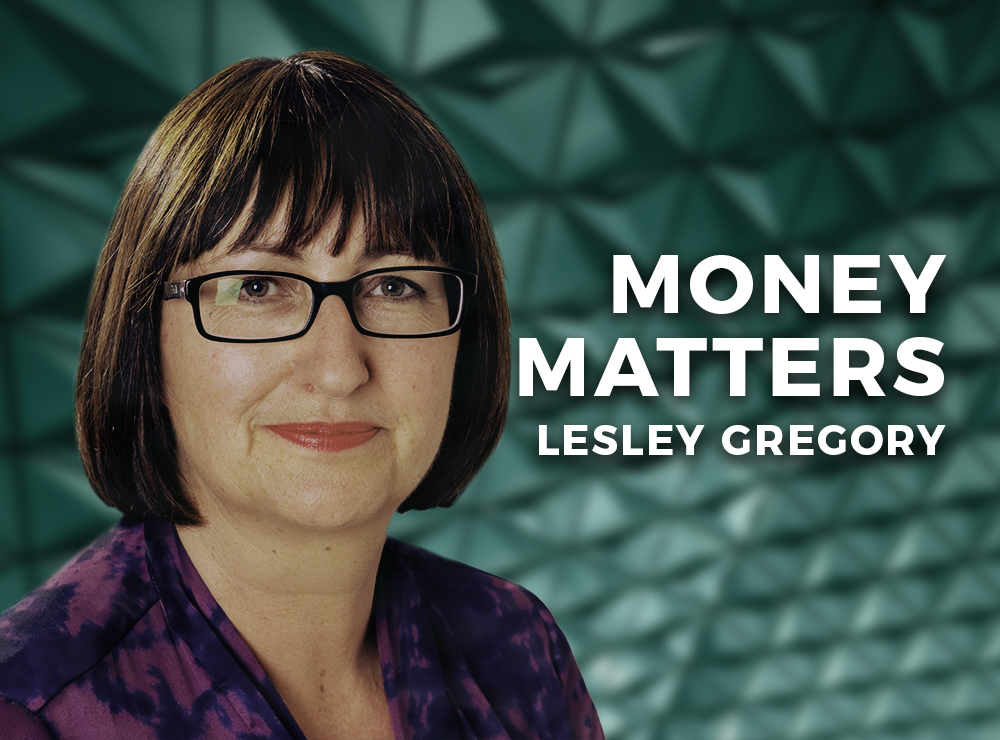
By LESLEY GREGORY
One of my New Year’s resolutions is to have a financial declutter.
We’ve just finished fixing up our 20-year-old kitchen, and it turns out the best part of the experience wasn’t the fact my drawers were no longer held together with Blu Tack but the cleansing feeling of getting rid of loads of “stuff”.
There was the popcorn maker used twice then pushed to the back of the cupboard, and the kitchenware “bargains” that were sure to come in handy one day – but didn’t. Why did we have so many glasses? Why did I own two mandolines when I don’t know how to (safely) use one?
It got me thinking about my financial cupboards. Why do I have so many bank accounts? And credit cards? I have at least 22 “loyalty” cards (perhaps more, but these are the ones I could actually find to count).
So, I’ve been digging into the darkest corners of my finances to see what’s there, to work out the costs attached to this jumble of accounts, cards and bills, and to decide what could easily go in the bin.
Bank accounts
I was a bit shocked, upon counting them, to find I actually have 15 bank accounts. There are legitimate reasons for some of the extras, but not for all of them. Two of them hold less than £1 each, so it seems they are there “just in case”. That’s a hangover from the days when bank accounts were much harder to open. These days it takes just a few minutes to open an account online, if you have the right ID handy or you’re an existing customer. To be honest, I’m not too worried about the accounts that don’t charge monthly service rates, but there are a couple that are costing me unnecessary fees and they will have to go.
Offset account
One of the accounts that I’ll close is our mortgage offset account. It’s not that these aren’t wonderful financial tools, but they do reach the end of their usefulness. We are in the fortunate position of being able to completely offset the fast-reducing balance of our longstanding mortgage. Plus, we now have sufficient “break-glass-in-case-of-emergency” savings elsewhere. So why don’t we just pay off the mortgage? Especially when we’re paying a monthly service fee for what’s in effect a line of credit we don’t actually need.
Credit cards
An audit of the plastic in my wallet (or, these days, on my phone) is well overdue. For a start, there’s the credit card I knew would be more convenient on a US trip seven long years ago but which I haven’t used since. There’s the credit card I’ve tried to close twice, before falling for the customer service patter about it having “no fees, so why don’t you just keep it?”. Sure, it’s not costing me anything – but it’s on my credit record, where having multiple cards can be a red flag, and it’s an ever-present temptation.
Loyalty cards
I knew I’d reached “peak loyalty card” a few years ago when I had to buy a separate, specialist card wallet. Then I found an app where I could store my loyalty card details rather than having to carry a wad of plastic, which delayed the inevitable for a while. In 2020, if someone asks me if I’d like to become a “member” of their loyalty scheme the answer will be a polite but firm “no”. (I’ll talk more about loyalty cards in my next column.)
Subscriptions
We don’t really think of them this way, but subscriptions to streaming services like Netflix or Spotify or Apple Music are in the financial cupboard too – especially when you have a number of them. How many subscriptions do you have and what does that add up to each month? If you’re not a heavy user you might be better paying one-off fees to rent movies online. Do you have a family membership for your music when your teens or young adults don’t actually use the same platform? (I can put my hand up here.) Rummage around in this space too.
By the way, I didn’t just throw out my kitchen clutter. We have a neighbourhood Facebook group and a suburb-based “marketplace” where people can sell or give away goods so they can be reused and recycled rather than ending up in landfill. I now have some pocket money to go into one of my freshly renovated bank accounts, and I enjoyed seeing items go to happy new owners exercising their money sense by buying second-hand.
Come on then. What’s in the back of your financial cupboard? It’s time to tidy up.
LESLEY GREGORY is an experienced personal finance and consumer journalist. If you’re interested in more of her personal finance tips, here are some more of her most recent articles:
Does your bank deserve your custom?
Nine money rules to live by in 2020
Christmas gifts that keep on giving
Five ways to wean yourself off of your credit card
Why you should stress test your personal finances










